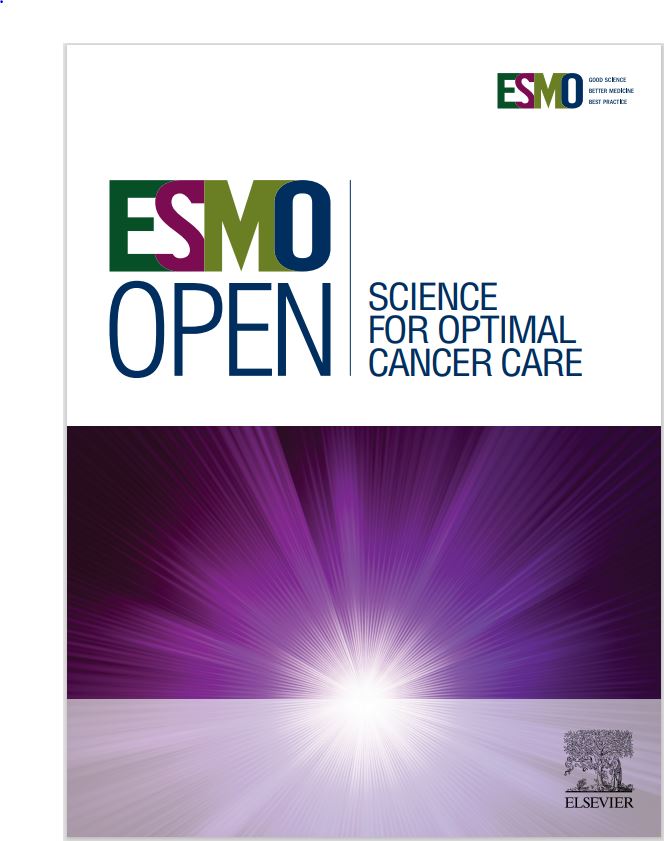早期乳腺癌扩大辅助内分泌治疗:寻找个体平衡
IF 7.1
2区 医学
Q1 ONCOLOGY
引用次数: 0
摘要
内分泌治疗(ET)是激素受体阳性早期乳腺癌患者管理的基石,占全球病例的70%以上。5年的辅助ET治疗在降低复发风险和改善生存结果方面的疗效是有充分证据的。然而,在初始治疗后5年发生晚期复发的风险促使人们探索更长的治疗时间。将ET延长到传统的5年以上,在降低复发风险和改善长期预后方面有额外的好处。然而,确定最佳持续时间和确定适合延长治疗的候选人往往是微妙的。这篇综述的目的是全面评估乳腺癌治疗中扩展ET的现状。它概述了绝经前和绝经后妇女延长内分泌治疗的基本原理,重点是临床试验和观察性研究支持延长治疗。此外,它强调了在患者管理中考虑相关毒性的重要性。它还探索了涉及ET与新药结合的新策略,导致治疗范例的演变,可能使延长治疗的需要过时。本文章由计算机程序翻译,如有差异,请以英文原文为准。
Extended adjuvant endocrine therapy in early breast cancer: finding the individual balance
Endocrine therapy (ET) is a cornerstone in the management of patients with hormone receptor-positive early breast cancer, which accounts for over 70% of cases worldwide. The efficacy of adjuvant ET for 5 years in reducing the risk of recurrence and improving survival outcomes is well documented. However, the risk for late relapses, occurring >5 years after initial treatment, has prompted exploration of longer treatment durations. Extending ET beyond the traditional 5-year period offers additional benefit in reducing the risk of recurrence and improving long-term outcomes. Nevertheless, determining the optimal duration and identifying suitable candidates for extended therapy is often nuanced. This review aims to comprehensively evaluate the current landscape of extended ET in breast cancer management. It provides an overview of the rationale behind extending endocrine treatment in both premenopausal and postmenopausal women, with a focus on clinical trials and observational studies supporting extended therapy. Furthermore, it emphasizes the significance of considering associated toxicities in patient management. It also explores novel strategies involving the combination of ET with new drugs, leading to an evolution of treatment paradigms that may make the need for extended therapy obsolete.
求助全文
通过发布文献求助,成功后即可免费获取论文全文。
去求助
来源期刊

ESMO Open
Medicine-Oncology
CiteScore
11.70
自引率
2.70%
发文量
255
审稿时长
10 weeks
期刊介绍:
ESMO Open is the online-only, open access journal of the European Society for Medical Oncology (ESMO). It is a peer-reviewed publication dedicated to sharing high-quality medical research and educational materials from various fields of oncology. The journal specifically focuses on showcasing innovative clinical and translational cancer research.
ESMO Open aims to publish a wide range of research articles covering all aspects of oncology, including experimental studies, translational research, diagnostic advancements, and therapeutic approaches. The content of the journal includes original research articles, insightful reviews, thought-provoking editorials, and correspondence. Moreover, the journal warmly welcomes the submission of phase I trials and meta-analyses. It also showcases reviews from significant ESMO conferences and meetings, as well as publishes important position statements on behalf of ESMO.
Overall, ESMO Open offers a platform for scientists, clinicians, and researchers in the field of oncology to share their valuable insights and contribute to advancing the understanding and treatment of cancer. The journal serves as a source of up-to-date information and fosters collaboration within the oncology community.
 求助内容:
求助内容: 应助结果提醒方式:
应助结果提醒方式:


